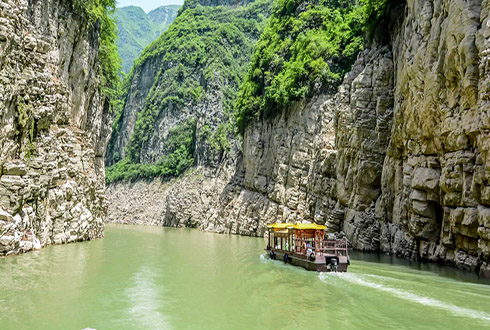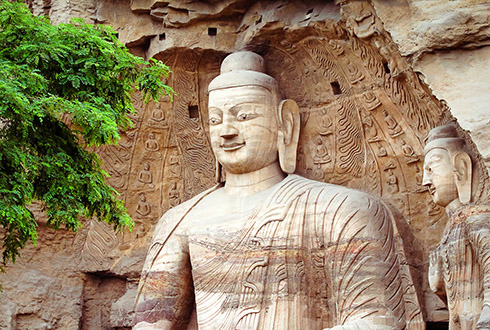China is big. Really big. With sweeping landscapes that are filled with some of the world’s most incredible sights and fast-paced cities that meld ancient and modern effortlessly.
There’s 5,000 years of history to explore and a complex culture to unravel, some delicious food to taste and beautiful scenery to admire. So how do you even begin to explore it? By scratching the surface of course! The must-see cities and sights, like capital Beijing, the Great Wall, Terracotta Army, Shanghai, cuddly-looking giant pandas, the breathtaking panoramas of the Yangtze and Li rivers, will give you an understanding of what China was, is and is going to be, and a whole load of unforgettable memories too!
The amount of rail travel you'll be enjoying varies from tour to tour. You may be exploring a country travelling predominantly by train or perhaps just getting a flavour of how the locals get about with one or two select journeys. We've also included those tours that include a journey on iconic scenic trains. Take a look at the tour inclusions to see how many rail journeys you'll be enjoying in each instance.
Inclusive of Tour & Flights
Fully Inclusive of Tour & Flights
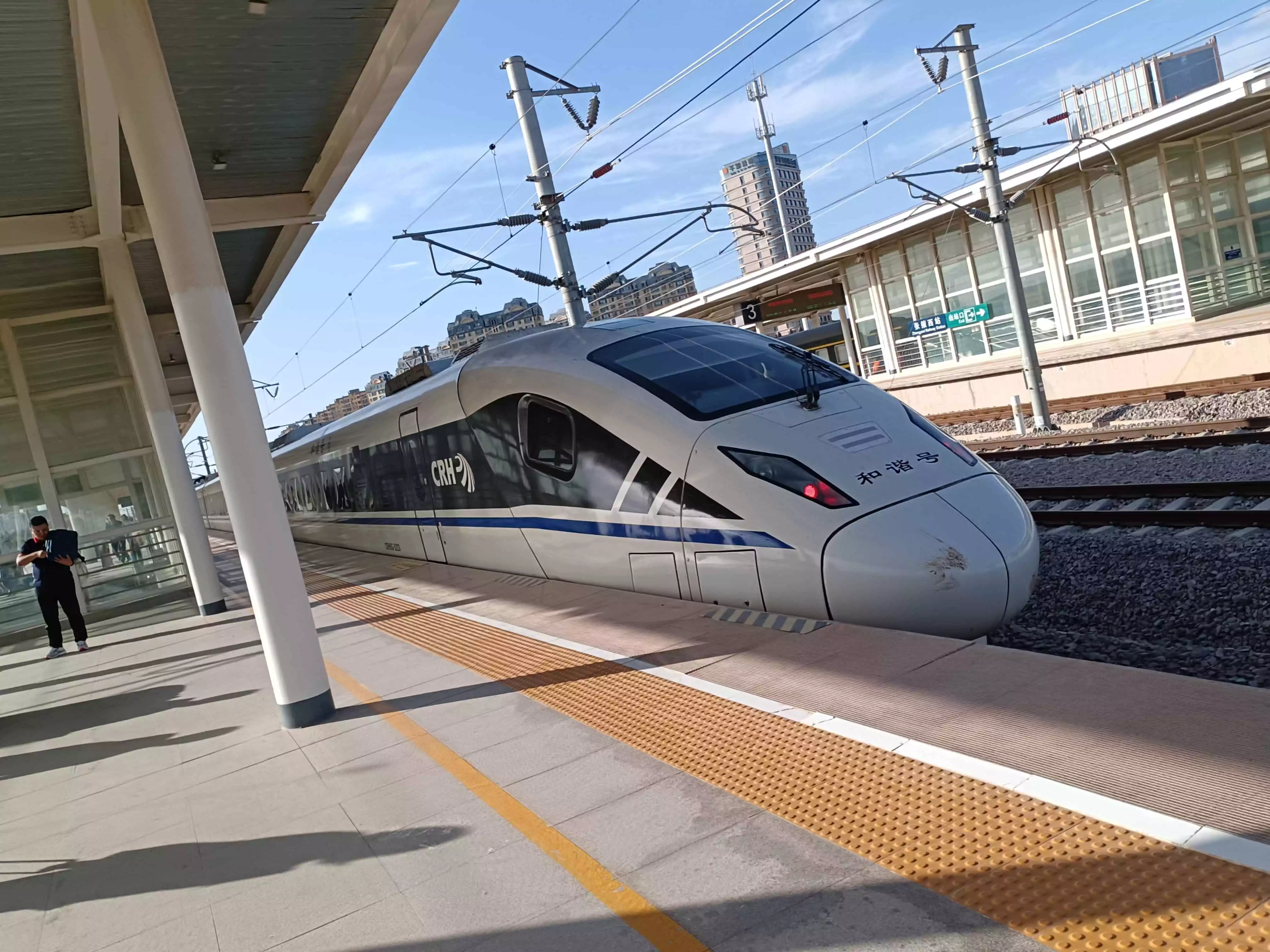
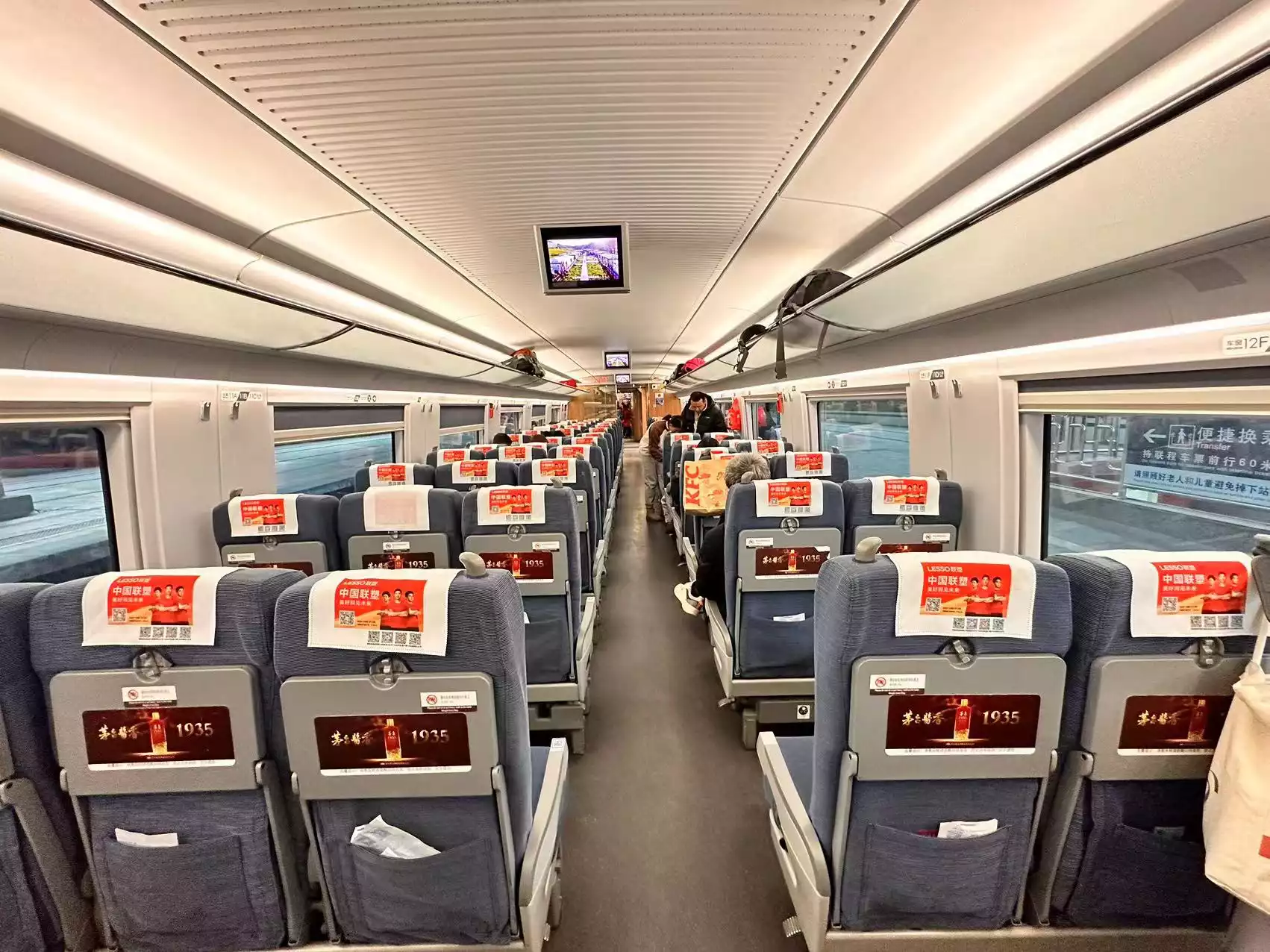
China’s high-speed rail network runs to about 45,000 kilometres of track, with trains speeding along at a top speed of 350 kilometres per hour (217 mph). Sleek and sophisticated in appearance and nearly always on time, these bullet trains connect over 200 cities all over the country, and come in three categories, G, D and C.
G trains are the fastest, running during the day, while D is second-fastest and offers overnight facilities like soft sleeper carriages. C trains run between neighbouring cities. All of these trains are air-conditioned, provide free boiled and cold water, have both Western and squat toilets available and have a dining car and café/bar for drinks.
Seats are all forward facing and are wider, softer and plusher with more legroom than your average airline seat. They are also reclinable so you can sit back and watch the landscapes fly by the window or if you’re on one of the newer trains (G category) browse the internet with the train’s Wi-Fi.We take several journeys onboard high-speed trains on our China by Rail and Silk Road Explorer tours.
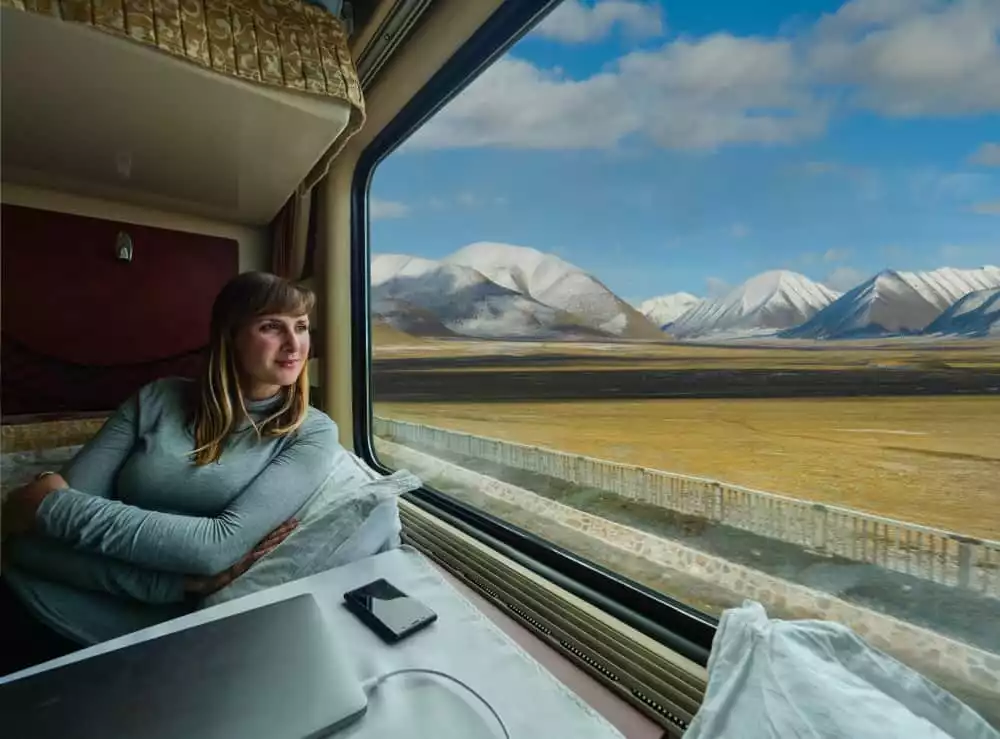
Although they don’t reach the speeds of their high-speed counterparts, China’s regular train services are just as effective of moving people around the country but tend to be older and with lower quality facilities which is reflected in the price.
Generally air-conditioned, washbasins and boiled water is available at the end of each coach and there is a dining car serving freshly cooked food. There are toilets onboard, but they tend to be squat only. They also come in three categories – Z, T and K – Z being non-stop express trains that operate long distances between cities, running up to 160 kph (99mph), T being express trains with limited tops and K being fast trains that make the most stops of the three.
Regular trains are more likely to offer sleeper services with two classes, soft and hard. Soft sleepers offer compartments with a closing door, with four berths, two on each side, with a pillow and sheet provided, plus an individual reading light – we use this class of carriage on our Tibetan Railroad tour.
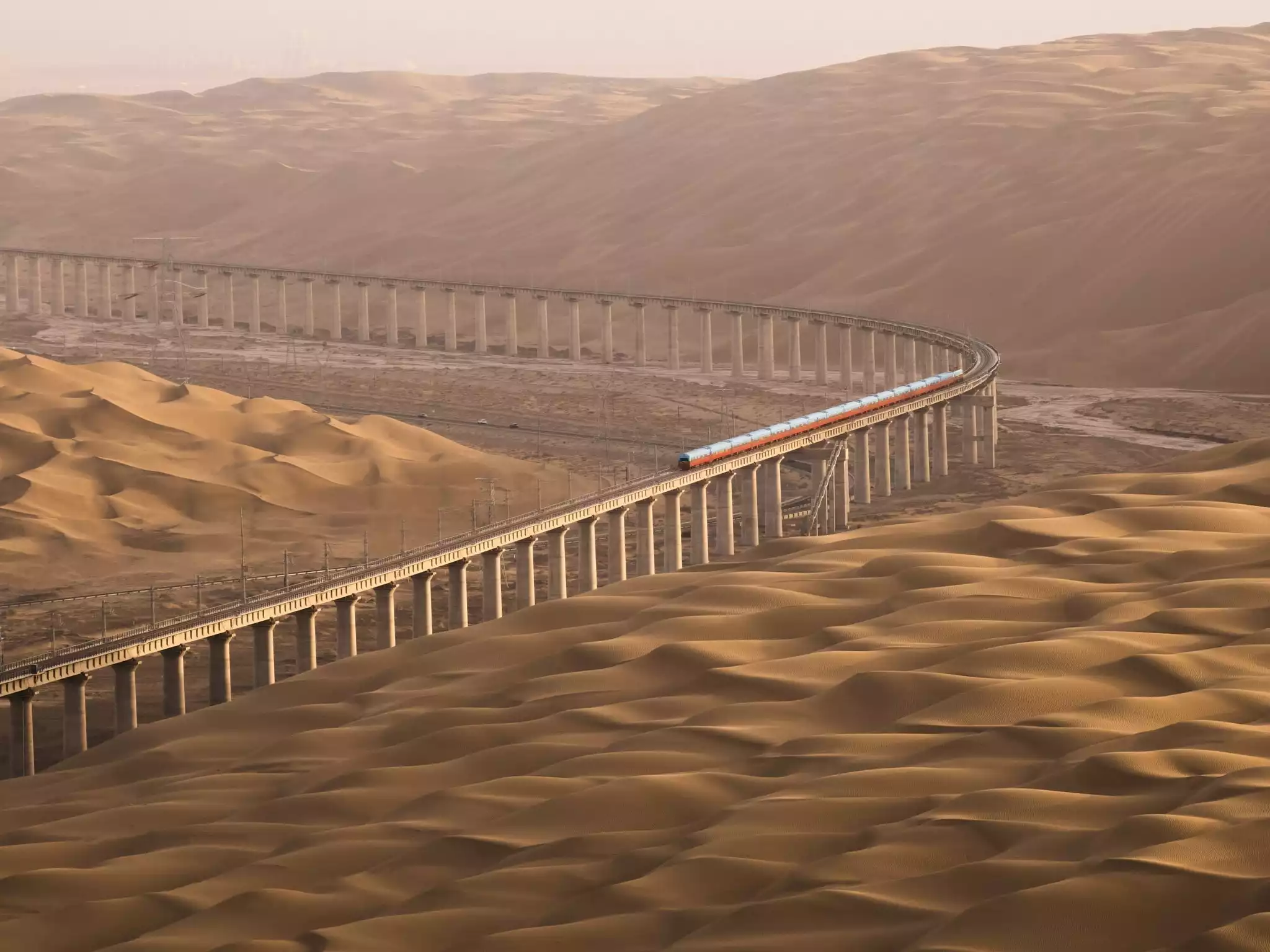
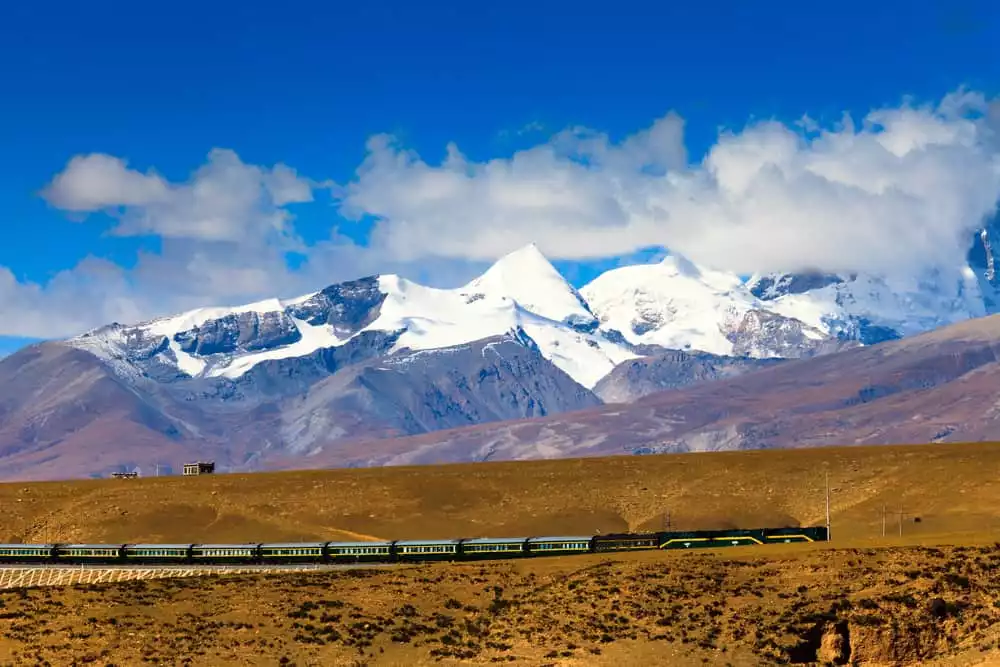
The centrepiece of our spectacular Tibetan Railroad tour, the Qinghai-Tibet line is the world’s highest railway, nicknamed the ‘Sky Road’ in China, crossing the Tibetan Plateau to reach capital city Lhasa. It is an incredible feat of engineering, much of it built on permafrost, with numerous bridges crossing rivers, torrents and gorges as it makes its way across the roof of the world.
From Xining, China to Lhasa it is 1,972kms and takes around 21 hours. Air-conditioned carriages and a restaurant car keep you comfortable as you cross barren plateau, 5,000 metre plus snow-capped peaks, high-altitude desert, grasslands, innumerable yak herds, and expansive lakes, on one of the most adventurous train journeys out there. During the journey the train reaches Tanggula Pass, its highest point (and the highest of any railway in the world), at 5,231 metres above sea level.
The soft sleeper compartments have four berths plus a supply of hot water and access to Western toilets. As the train climbs higher, oxygen is pumped into the carriages to keep the affects of the altitude at bay.
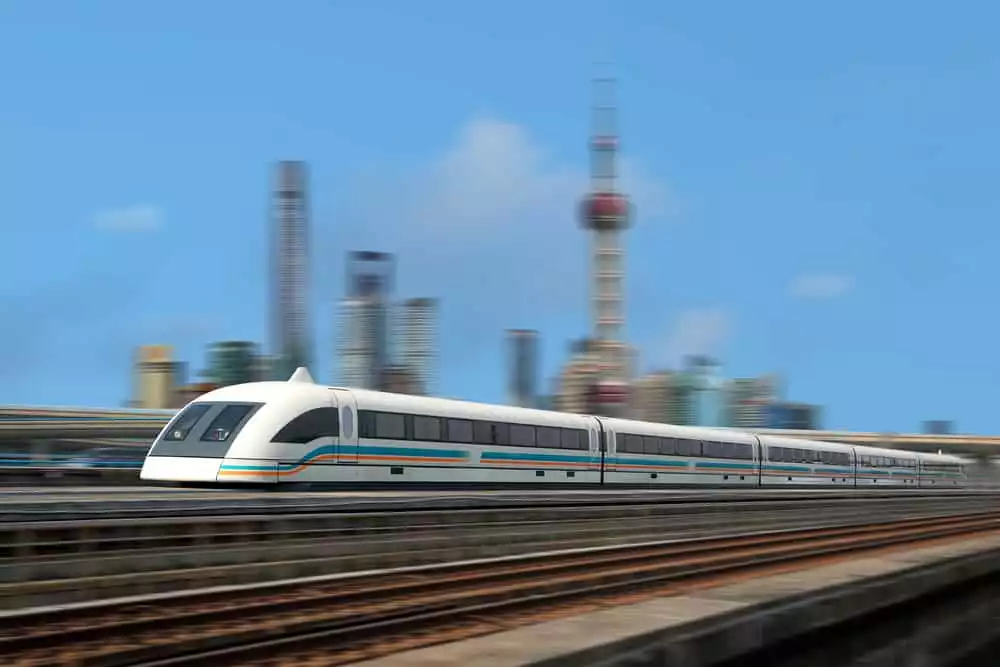
Running between Shanghai’s Pudong International Airport and Longyang Road Station, the Shanghai Maglev (Magnetic Levitation) is the world’s first commercial high-speed Maglev train. The Maglev commenced normal operations in October 2003, and completes its 30-kilometre journey between stations in 8 minutes and 10 seconds.
It’s maximum speed is 431 kilometre an hour, making it the world’s fastest train, however, it only runs at this speed at certain times of day, and at 300 kmph at others. Passengers say that as the wheels retract and the train begins to levitate it feels like a plane taking off and that only a slight sway gives away how fast you are travelling. You can experience it for yourself on our China by Rail tour.




